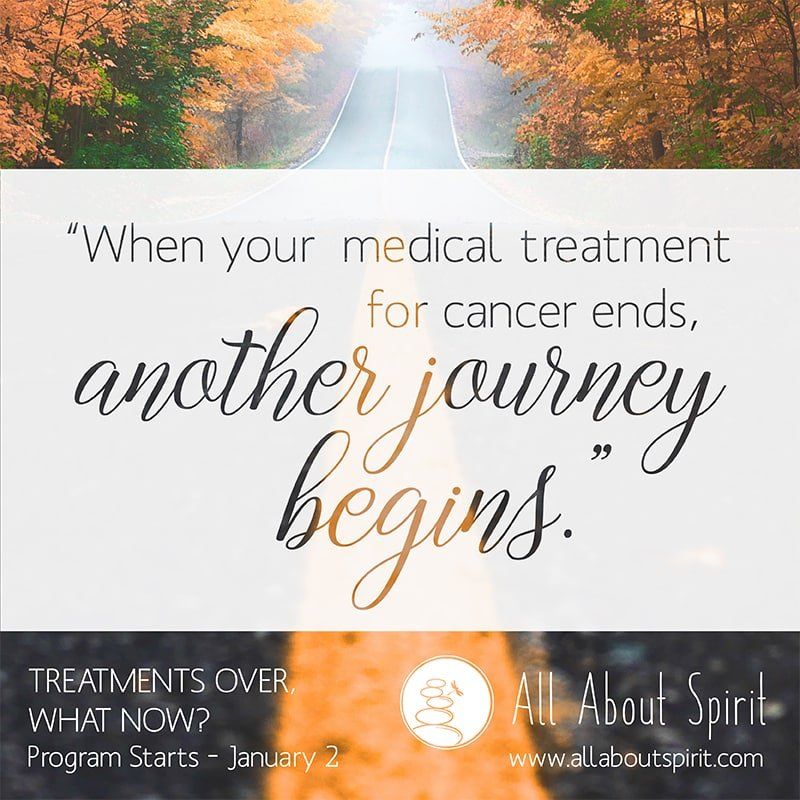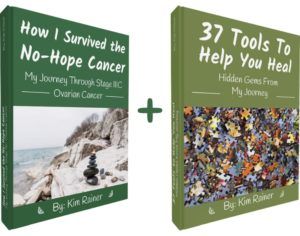E-63 What Do You Do When Your Oncologist Retires?
What Do You Do When Your Oncologist Retires?
Today’s episode of Life After Cancer is called What Do You Do When Your Oncologist Retires? And this topic is relevant for all! Lung cancer survivors, people with an ovarian cancer diagnosis, pancreatic cancer survivors, those with a prostate cancer diagnosis, breast cancer survivors, glioblastoma survivors, stomach cancer survivors, lymphoma survivors, in other words all cancer survivors – if your doctor retires or moves, it has an impact.
In the Name of Full Disclosure . . .
Today’s episode of All About Spirit’s Life After Cancer is based on my own experience. Most of you know I am an 11-yr stage 3c ovarian cancer survivor. My oncologist (Dr. G.) was my oncologist from the beginning. He relocated – and I am struggling in his absence.
To Make Matters Worse . . .
Not only did my oncologist of 11-years retire, but my Ob-gyn, and primary care physician of 22-years (Dr. B.) also retired. In the wake of their leaving, I am struggling. To tell the truth, it is more than a struggle about who to talk to. Indeed – it is down-right unsettling.
Dr. G and I had a rapport. He has been driving my medical bus for over 11 years and above all, I trusted him.
Meeting the New Doctor(s) . . .
About three months ago I had my first visit with the new oncologist in the practice. While I am sure the new doc is a fine and competent oncologist, he is not my oncologist .
Although I had a new primary care physician since my hysterectomy, my oncologist was my go to guy.
For the last few months I have been restless and irritable when before this visit I have been content. It wasn’t until a few weeks ago that I realized why.
Fear is a Powerful Thing . . .
As I unpack this part of my journey I can finally acknowledge there have been some changes in my body over the past few months. Thus some underlying fear of recurrence. All in all, cancer survivors live with that underlying fear – and in my case, changing doctors has made it worse.
This is my first blip on the radar since Dr. G’s relocation and and Dr. B’s retirement. And in all honesty I want to talk to my doctor about the changes.
When I was with the new oncologist, I got the 11 minutes per patient per visit because I am not in active treatment. Under the circumstances part of me gets it and part of me resents that I wasn’t afforded the time to have a real conversation.
Granted, I saw my primary care physician after that, and we had a brief conversation. But she didn’t get it the way Dr. G got it. As a result, I didn’t go further in my conversation with her either.
Now I have the unaddressed fear running rampant in my mind and body.
Fear and My Missing Safety Net . . .
What I have come to realize is, my fear is growing because my support team is no longer in tact and my safety net seems to have disappeared my fear is growing.
Having people to go to with my questions, no matter how silly they seam, is crucial to my well being. Hence, the loss of my safety net has been devastating.
If You’ve Heard the Words . . .
As has been noted, if you have had a cancer diagnosis, there is a heightened sensitivity to body changes, subtle or otherwise. When that little twitch or ache, that little this or that shows up, I wonder – could that be the cancer coming back?
During active treatment that fear is alive and palpable. Sometimes afterwards, it rears it’s ugly head.
It took me weeks – in reality months, to figure out what was actually going on. To begin with I had symptoms. Secondly, I had no-one to take my concerns to.
The Realization . . .
So, what do you do with the realization once it finally hits?
The first thing I did was figure out where my oncologist relocated. When I found him, I called Dr. G’s office and told the nurse I was a patient of Dr. G’s for more than 11-years and I was having symptoms. Let me tell you, I couldn’t have the conversation without crying.
As embarrassing as that was, I know people who work in oncology have a special level of compassion. The nurse told me Dr. G misses his patients so very much and she was sure he would call me back.
For the simple reason that I felt heard, I breathed a sigh of relief. I could fill my lungs a little deeper and relax into what might be happening. I could relax a little bit just because I knew what was happening. Just reaching out and asking the question was helpful.
If There is a Moral of Today’s Story it is . . .
If you have a thought or idea that keeps tickling the back of your mind, that keeps showing up in your thoughts, or that you want and don’t want to acknowledge it at the same time, keeping it a secret is not going to make it go away.
Sharing what is going on in our minds and hearts, with people who have earned the right to hear the truth about us, helps cut the fear, burden and stress in half, not to mention brings us closer together.
When I let the people closest in on what is happening with me, it also creates space for additional support and allowances because when I am in fear, it is most likely showing up in how I interact with others – and it usually comes out as anger.
I Know I am Not Alone . . .
I have talked with scores of survivor’s over the years and on the subject of telling those close to us that there is something going on, many of us want to keep it a secret.
There are a host of emotions that go along with a cancer diagnosis. And likewise a host of reasons we don’t want to talk about it. Fear of being over dramatic. Being afraid of raising alarms when there is no cause for alarm. In a like manner, fear that there is cause for alarm and being right.
Someone Needs to Ask the Questions . . .
There needs to ask us what is real and what is fantasy in the current reality. Somehow there has to be a way to come back to the truth about the situation right now, and I know I can’t bring myself back on my own. And perhaps most important, someone needs to ask, are the thoughts you are thinking right now moving you closer to what you want in your life, or further away from it. AND, what are you willing to do about it.
Doing this work as long as I have, I know the importance of sharing. We heal by sharing our stories, and others heal by hearing them.
The Real Moral . . .
If you have something going on in your body, tell someone about it. Let the people you love into your life. Specifically, tell them the stuff you don’t want to share.
If your support network has changed and you don’t have access to the people you used to have access to, don’t let that be the reason to go it alone. Take steps to fill the void.
Indeed, it is imperative that our cancer team is trusted by us and the people who love us. If you don’t have that in your life today – please – please – please – take the action necessary to change it.
If you’re not sure where to start, I can help you with that.
Make it a great day!
The post E-63 What Do You Do When Your Oncologist Retires? appeared first on All About Spirit.
If this article inspires you, then please share the love...
Get The Survivors Manifesto
(it's free!)
What to do when your cancer is gone but everything still feels different.
Enter Your Details here
Survivors Manifesto Signup
Join Free For Post-Cancer Support
Join the All About Spirit Community to receive support
& encouragement via email, from one survivor to another.


